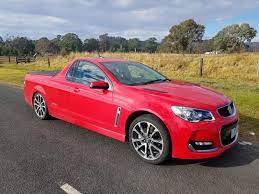Monthly Archives: August 2024
National Scam Awareness Week

No doubt you have heard through multiple channels that it is National Scam Awareness Week.
Some of the stories that have come out this week have been frightening. Perhaps the most alarming one was that the Commonwealth Bank stated that they are pulling down 50 fake web sites a week!
One must be vigilant and rely on common sense. If your employer, should be running training and moreover have the best security software. We have just ramped up our security and would welcome introducing you to an IT specialist.
Here are some scary facts – losses year to date from various forms of scams have been:-
- $94,120,506 from investment scams
- $13,399,355 from romance scams
- $10,126,156 from phishing scams
But I suspect the real number is much higher as many would be too embarrassed to report their loss. and rarely can it be undone.
The three most common scam contact methods are:-
- Text message – 62,121
- Email – 51,023
- Phone call – 26,804
There are many things I could say but perhaps the best 4 tips I can give are:-
- Never click on a link from a text or email; always log in from your normal log in page.
- Never respond to a request for personal information.
- Use two factor authentication.
- Have an IT specialist make sure your security is state of art and up to date.
You can read more at the National Anti-Scam Centre – https://www.nasc.gov.au/
How can I claim car travel?

In order to claim car travel in your personal Tax Return:-
- You (or your partner) must own the car.
- You must have undertaken a trip for either your business or your employer.
You can claim under two methods:-
- Log book, or
- Cents per kilometre
Tip
You can use a log book kept for three months in the current year or in the last four years (provided the pattern of travel hasn’t changed significantly).
Tip
You must have a properly kept log book. You can do so by buying one in a stationers or you can access an electronic one form our firms app.
Tip
As old school as it may seem, it is best to keep a paper log book.
Throw it on the dash so you can see it when you get in the car (and get out).
I can’t tell you the number of times a client has told me they started an app log book but kept forgetting to record trips. End result? Either have to revert to a lower cents per km claim (see below) or endured the frustration of having to start a new log.
Tip
If you are wanting to claim under the log book method, you will need to keep other records other than the look book. Click here to see the required documents.
Tip
You can claim 88 cents per kilometre under the cents per kilometre method for up to 5,000 work/business strips. This means you can still claim 5,000 km where you travel say 5,500km. Some people choose to do so as it gives them a better claim than under a log book. All you need is a reliable estimate of all trips undertaken during the year.
Want to know what works best for you
Call us. We even have a salary sacrifice calculator so we work out the best way to package up a work car and legally minimise the Fringe Benefits Tax.
What is the depreciation limit?

What is the depreciation limit is a very good question as it has unclear for too long.
It was all clear after 30th June 2023 that the instant asset write-off provisions for small businesses had ended. It was great whilst it lasted (but noting the flip side that the proceeds from selling car fully written off are now fully assessable).
The depreciation limit for 2023/24 was up in the air for far too long. Unfortunately the proposed amendment of a $30,000 limit was not passed. So the depreciation limit for 2023/24 is $20,000 – to read about tips and traps about the $20,000 limit, please refer to our earlier blog at – https://www.mrsaccountants.com.au/asset-depreciation-claims-for-2023-24/
So what is the depreciation limit for 2024/25?
$20,000.
Who can claim these depreciation rates?
These limits are available to businesses (whether operated via a company, trust or partnership or as a sole trader in one’s own name).
The $20,000 limit also applies to an opening pool
Small businesses who have elected to use the pooling depreciation system with its high depreciation rate can also claim the pool balance when it falls below $20,000. That is defined as being:-
- The opening balance of the pool
- Plus the taxable portion of acquired assets
- Less the taxable portion of assets sold during the year.
So if your business bought an asset costing say $22,000 ex GST in 2023/24, then the opening balance of $18,700 can be written off in full in 2024/25 (assuming no other assets acquired or disposed of).
It is beyond the scope of this article to run through all the rules but please keep in mind that you can only claim depreciation from when an asset is installed and ready for use.
Please don’t hesitate to contact us if you have a query.
Can I deduct the cost of charging my electric vehicle?

This has become a common tax question. And the answer is it depends whether you can deduct the cost of charging your electric vehicle.
No claim is available if you claim work car expenses under the cents per kilometre method. That is because the per kilometre rate takes into account charging costs.
Electric charging costs can be claimed at the rate of 4.20 cents pkm where:-
- Claiming car expenses under the log book method.
- Motor vehicle expenses for vehicles that are not a car (such as a one-tonne ute).
To qualify to use this rate you must satisfy the following three conditions:-
- The car or vehicle is a zero emissions vehicle. It is important to note that hybrid vehicles are not zero emission vehicles.
- You must have incurred electricity costs at home.
- You have kept relevant records.
There are 3 relevant records to keep:-
- A valid log book.
- Opening and closing odometer readings.
- An electricity bill (with proof of obligation to pay if in a shared house).
What if I charge my vehicle out of home?
Thankfully the ATO have dropped their initial harsh stance of not allowing such claims.
To be able to claim such costs, the vehicle must have functionality that accurately reports the percentage of a vehicle’s total charge based on the charging location. One is then to adjust the home charging percentage adjusted accordingly.
If your electric vehicle doesn’t identify charging by location then one can only claim either:-
- The home charge at 4.2 cents pkm or
- Commercial charging charge costs.
But not both.
We hope this charges up your tax claim – but please contact us if you have any queries.
